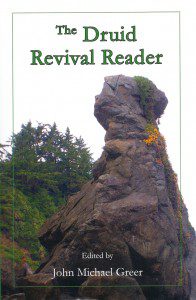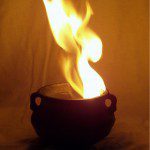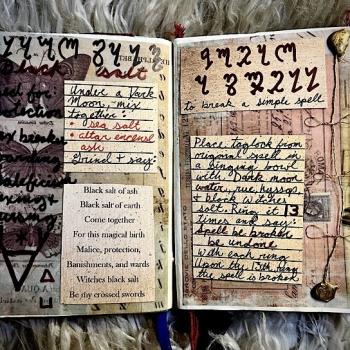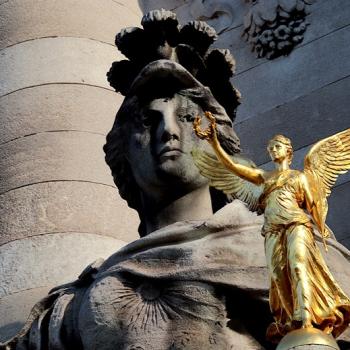edited by John Michael Greer
240 pages
available from the Ancient Order of Druids in America or from Amazon.com
Modern Druidry traces its lineage back to 1717 when the Ancient Druid Order was founded in a pub in London. Historian Ronald Hutton thinks that meeting may be more apocryphal than historical (see Blood and Mistletoe, page 127), but there is no doubt there were people calling themselves Druids in the 18th century and at least one Druid order by 1792.
Who were these early modern Druids, what do we owe them, and what can we learn from them today? The Druid Revival Reader, edited by AODA Grand Archdruid John Michael Greer, presents twelve essays stretching over a 200 year period from 1743 to 1946.
These early members of the Druid Revival were primarily interested in preserving and reviving Celtic culture. Their interest, for the most part, did not extend to reviving the ancient Celtic religion. They were Christians, mostly Anglicans. Some, such as Edward Williams (Iolo Morganwg) were Unitarians or members of other dissenting congregations.
The first essay, “The Theology of the Druids” by William Stukeley (from 1743), is an interesting read for anyone from our era. Stukeley lived in a place and time that was thoroughly Christian – his theology attempted to align what was known about the ancient Druids (which was even less than we know now, which still isn’t much) with the Bible. Keep in mind this was long before Darwin’s work on evolution and geologists’ work on the age of the Earth – what’s now known as “young Earth creationism” was still a reasonable theory.
Stukeley was intelligent and well educated – he was a medical doctor and later an Anglican clergyman. He was an antiquarian who did some of the earliest archeological work at Stonehenge and Avebury. To read someone of his stature declaring with certainty things we now know to be completely false, and understanding that Stukeley had no evidence on which to base his opinions, is quite the cautionary tale. What do we believe with certainty that the Druids and Pagans of 200 years from now will look at and shake their heads?
Another cautionary tale comes from Edward Williams, better known as Iolo Morganwg. Iolo published several volumes of “ancient” Welsh poetry in the late 18th and early 19th centuries. Turns out he wrote most of it himself, but his work was so good the deception wasn’t discovered for over a hundred years. Had he published his work as his own, today he would likely be known as one of the greatest Welsh bards in history, instead of one of the greatest literary forgers in history.
Among Iolo’s many roles was Unitarian minister. These quotes from “The Bards of the Island of Britain” show his attempt to express liberal Christianity through what he knew of Celtic culture.
God is one with life, and there is no life but God, and there is no God but life.
Some of his writings were presented as a dialogue between student and teacher.
Q: Art thou of opinion that every living being shall attain to the circle of Gwynvyd [the Upper World – JFB] at last?
A: That is my opinion, for less could not have happened from the infinite love of God.
Q: How is Awen to be obtained?
A: By habituating one’s self to a holy life, and all love towards God and man, and all justice, and all mercy, and all generosity, and all endurance, and all peace, and practicing good sciences, and avoiding pride and cruelty and adultery, and murder and ambuscade, and theft, and covetousness, and all injustice.
These thoughts may not have come directly from ancient Welsh bards, but they’re still good ideas.
The later Revival Druids had stopped trying to make Druidry mesh with Christianity and the Bible. In “The Sun Initiation of the Druid Priests and their Moon Science” from 1923, Rudolph Steiner proposed a more psychological interpretation of the wisdom of the Druids.
What was revealed on the surface of things was unimportant to him, but what welled up from below as the moon forces in the earth was important.
In “Druid Teachings and Initiations” from 1928, Lewis Spence tried to tell Britons they did not need to look to exotic locations for esoteric wisdom – there was plenty in their own heritage.
The Secret Tradition of Britain! Does not the very name stir the heart and appeal to the imagination of the true son of Albion with a thrill more mysterious and romantic than any allusion to the magics of Egypt or Hind? I need no Thebes or Benares, no Vedic Hymns, no Book of the Dead, for I am heir to a lore as exalted, as sublime as these, inherited from Druid sires, and in the main restored by pious searching.
The last essay in the book is “An Examination of Creative Myth” from 1946, by Ross Nichols, the founder of the Order of Bards, Ovates and Druids. By this time the emphasis had shifted from who the ancient Druids were to what modern Druids do. We also see Druidry as Nature spirituality.
What we need is to induce men to think of themselves as not outside the natural cycle but as active partners with nature in it. This is almost the opposite of wandering about in natural surroundings and dreaming. We need a functional approach, not a cult of pretty bits of indulgence in speed sensations.
Nichols recognized that in order to change the way we live, we must first change our myths, the foundational and orienting stories we tell ourselves.
Man is in action governed by emotive beliefs. If the weekender is merely living out the essentially selfish creed of the romantics, to bring about a different, humbler approach a different belief needs to be inculcated, quite dogmatically if necessary; and this is where myth enters.
The function of myth in a society shaped by Christianity obviously cannot be the revival of pagan deities.
Yet two pages later, Nichols begins doing exactly what he said could not be done – reviving pagan deities. If you’ve read The Book of Druidry this will come as no surprise. Nichols’ writing changes lanes from historical to metaphorical to mystical and back again, all without using turn signals. The reader – or at least, this reader – is never quite sure how a particular segment was meant to be understood. So you read it, think about it, meditate on it, and let what will come, come. I tend to think that was what Nichols had in mind anyway.
The Druid Revival Reader should be on the reading list of all Druids, even those of us who are thoroughly Pagan. The Revival Druids are part of our heritage – if it wasn’t for them and those who came after them there would be no Druidry for us to practice. They are our spiritual ancestors, as worthy of our honor as the ancient Druids whose name we have claimed.


















